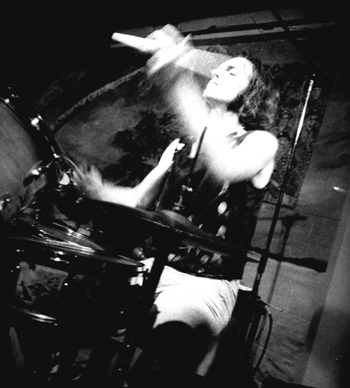Chris Cutler on Radio Web MACBA

Radio Web MACBA is a radiophonic project from the Museu d’Art Contemporani de Barcelona (MACBA) website that explores the possibilities of the internet and radio as spaces of synthesis and exhibition. The programs are available on demand, and as a podcast subscription.
Beginning with a program called Probes #1, drummer extraordinaire Chris Cutler (one of the founding members of the legendary band Henry Cow) examines the side-effects of the collapse of tonality in the 20th century, and intriguingly addresses the idea of Western music notation and modern recording as “memory technology.” As Cutler explains, “Different forms of memory will engender different forms of music.”
“In the late nineteenth century two facts conspired to change the face of music: the collapse of common practice tonality (which overturned the certainties underpinning the world of Art music), and the invention of a revolutionary new form of memory, sound recording (which redefined and greatly empowered the world of popular music). A tidal wave of probes and experiments into new musical resources and new organizational practices ploughed through both disciplines, bringing parts of each onto shared terrain before rolling on to underpin a new aesthetics able to follow sound and its manipulations beyond the narrow confines of ‘music’.”
“This series tries analytically to trace and explain these developments, and to show how, and why, both musical and post-musical genres take the forms they do. This first program sets the scene and investigates early reconsiderations of pitch: probes that postulate new scales to be constructed through the ever-greater subdivision of the inherited intervals of equal temperament.”
Probes #1 is a fascinating podcast, just one of several on the RWM website. Special thanks to composer and sound artist Douglas Henderson for bringing this site and Culter’s podcasts to my attention.